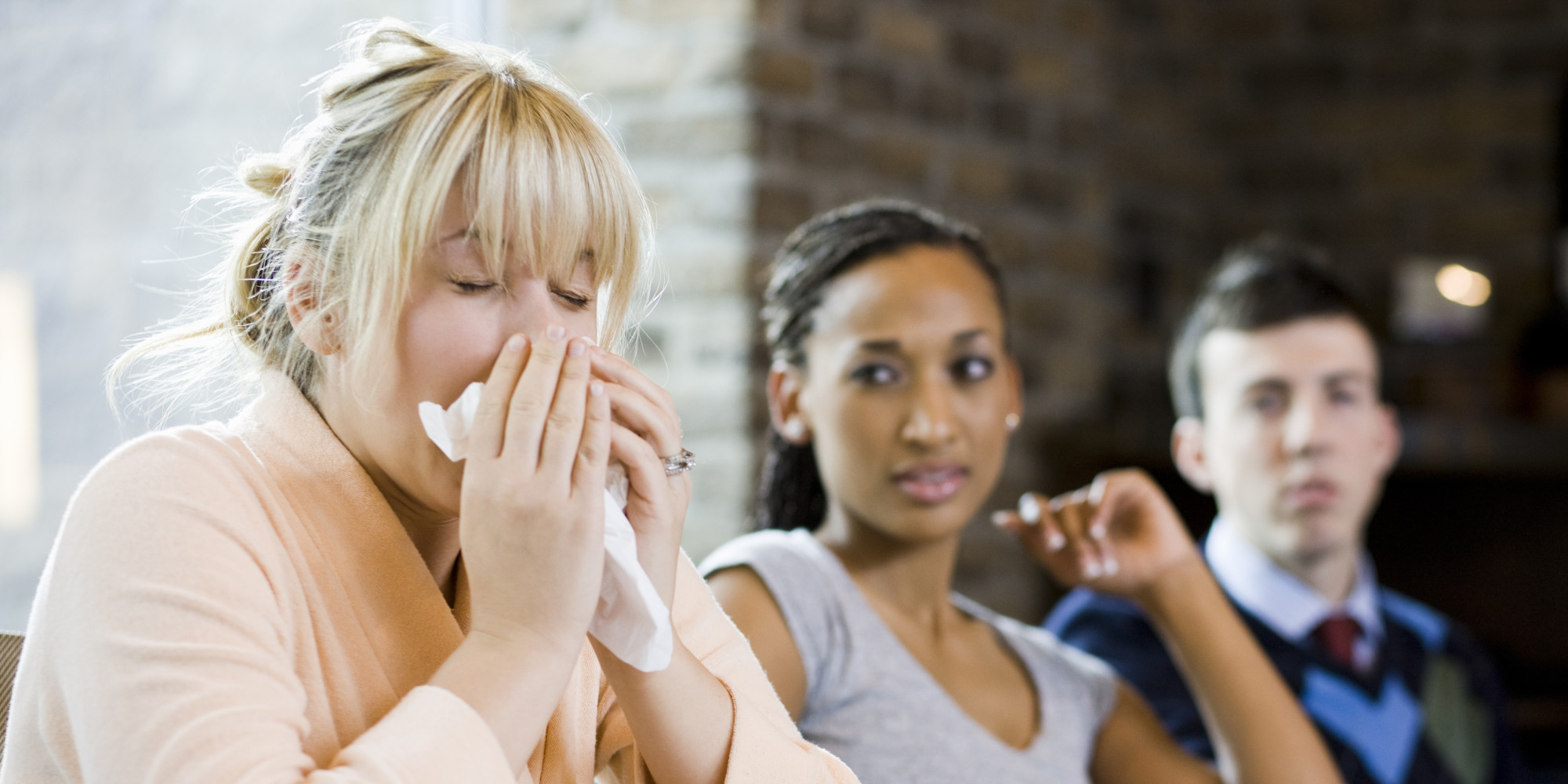Have you ever been in a lecture, one of those large ones with maybe 300 students, and heard somebody sniffle? Then two seconds later hear somebody else follow it up with their own sniffle? It goes on and on and on until at least half of the lecture hall is sniffling? Yeah, that’s a sign. One of many of the beginning of what I like to call “The Sick Season.”
It happens every year without fail; the coughing, sneezing and sniffling that takes like a wildfire in a sea of students. All the great fun that comes with the beginning of fall. Of course, many students going back to class—not just those in college—get sick around this time as well. But there is something unique about the college experience of getting sick in the fall.
Incoming freshmen usually get the brunt of this “sick season.” Some of the reasons for that are: coming into a new environment, living in close quarters with people and the stress that naturally comes with college. Though the freshmen are more susceptible to it, that doesn’t exclude the rest of the students from the chance of getting sick, especially not if it’s easy to spread. It’s very easy to get sick in college, but if you’re careful and you watch out for the beginning of this oh-so-fun-sick-season, you can prepare and hopefully avoid falling prey to it.
Little signs like the sniffling is how it begins. As the season starts, you’ll notice that more and more people are coughing or sneezing. Not even in a major way, just small coughs or sneezes here and there. Soon after, students begin to catch on, one after the other; and as time goes on, you’ll also notice that more students begin to miss classes.
Stomach viruses also begin to creep onto students. You’ll notice that your classmates or friends’ appetites will get strange. They won’t want to eat and stomach aches will become more frequent between students. Allergies also begin to rage at this time, so it’ll become common for you to see students rubbing their eyes, feeling tired and sneezing or coughing. With so many people getting sick and with all the close spaces and interactions that come with a college campus, all chances of catching a cold, flu or a virus become incredibly high.
All of this will happen; people get sick and it spreads. It’s, for the most part, unavoidable. There are ways to make the damage as little as possible or to avoid getting sick altogether. There are ways to prepare for this season:
1. Be Aware.
First and foremost, it’s important to be aware that this is going to happen. You must be aware that, not only is it flu season, but that being surrounded by so many people constantly makes it easier for you to catch something.
Getting the right immunizations and vaccines, as required by most colleges, will also help decrease the chances of you getting sick. It is a layer of protection that is needed in order to help you from catching the flu.
2. Keep your hands clean.
Whether you’re a freshman or not, a college campus is still a place where you interact with many people. So this one is simple: Wash your hands and use hand sanitizer. The amount of people you interact with and things you touch throughout the day is enormous. Regularly making sure your hands are clean helps keep you and others healthy.
3. Avoid sharing with people.
It seems obvious, but making sure to not share food, drinks, utensils or things like towels is very helpful and important. For the most part, being in college means being in a friendly atmosphere with many students, so sharing comes naturally. But taking care of yourself comes first, so being stingy for a bit is ok, especially when your chances of getting sick are higher.
4. Stay well rested.
This one might be a little harder to follow with everything that comes with college, but it is just as important. The more sleep deprived you are, the higher the risk you run of getting sick. Your defenses are lowered and if something is going around, it’ll be extremely easy to catch, so rest when you can.
5. Stay hydrated and eat well.
Keeping your body strong and healthy helps fight off the onslaught of germs and bacteria and viruses that come with the season. It’s harder to get sick when your body feels ready for the fight.
A lot of these tips seem fairly simple and obvious, but they really do help. When students around you start sniffling, coughing and sneezing at least your body will be able to handle it a bit better with these precautions.
Studies show that your environment, the people you surround yourself with, how strong or weak your immune system is and many other factors regularly affect your health. Being at college increases the chances of getting sick because of many of these factors, but that doesn’t mean you have to let yourself get sick (not if you can help it anyway).
If you’re aware and you try to prepare yourself for the season when everyone gets sick, you might be able to come out of the season without getting sick once. It’s not always easy and there is always a chance that you might still get sick even after preparing and being careful, but trying to stay healthy and taking care of yourself is important. Fall, or the “Sick Season,” is always going to come with all the fun of germs and infections.

















